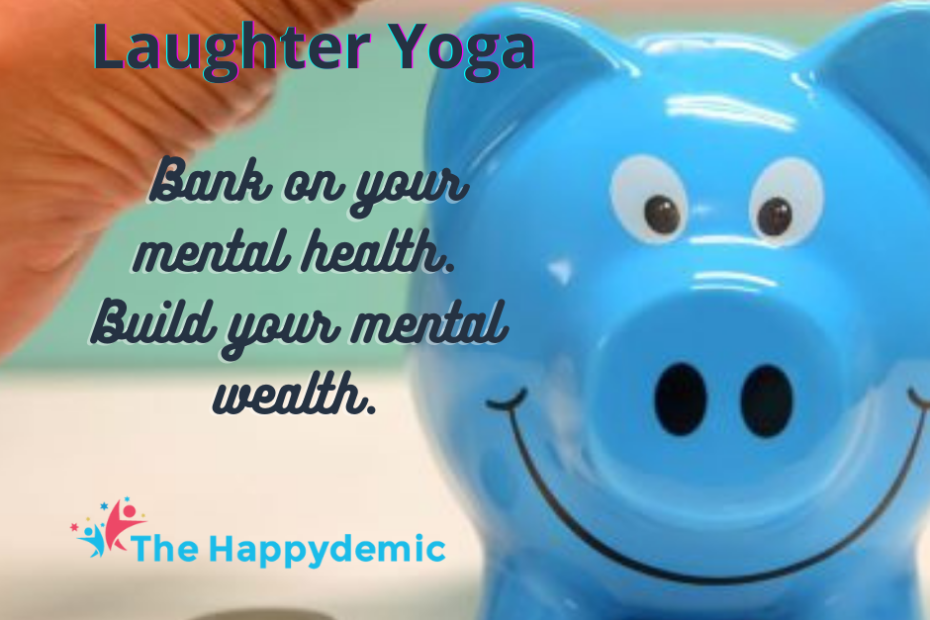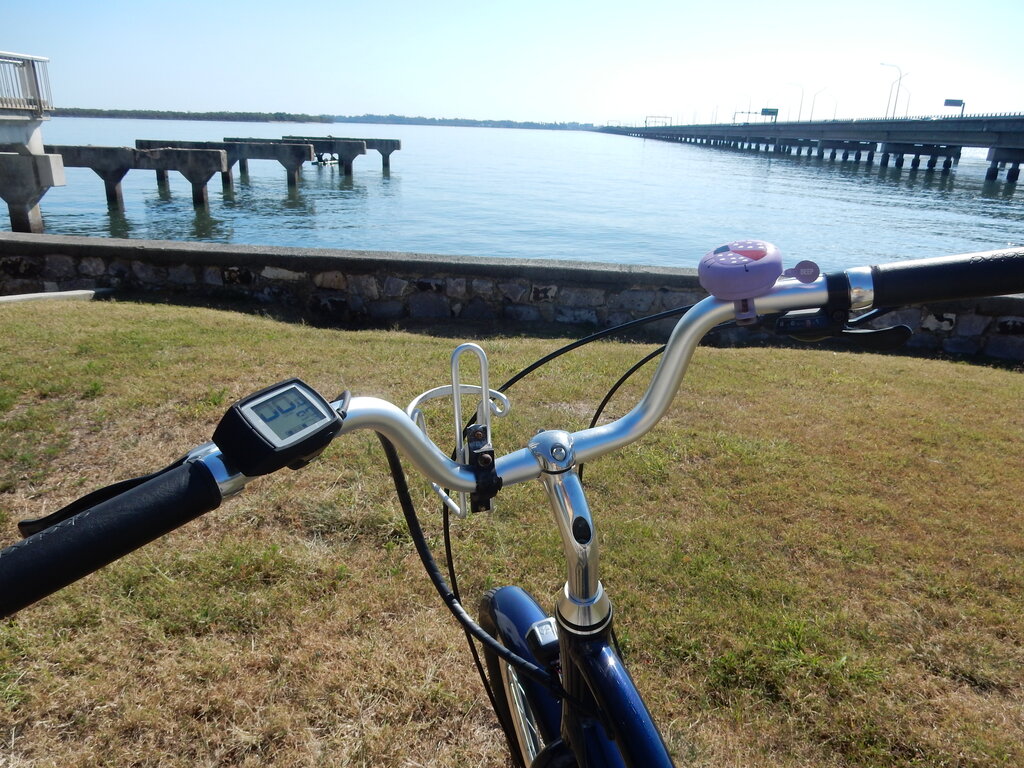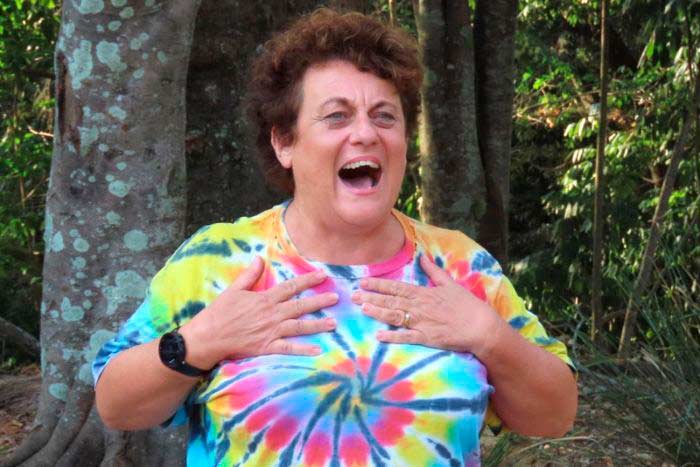What does the term ‘mental health’ mean to you?
Too often still, I feel, there’s a negative association with those two little words combined rather than an appreciation that we all have mental health, good or bad.
Mental health is a bit like debt.
Not all debt is bad debt: some is good and some is smart. So explained friend Helen Baker years ago when I set out to become more financially literate. Helen Baker is one of Australia’s very few financial advisers to hold a Master’s degree in the field and she is the author of two books, On Your Own Two Feet: Steady Steps to Women’s Financial Independence and On Your Own Two Feet – Divorce: Your Survive and Thrive Financial Guide.
Helen Baker reinforced the importance of doing small things early for a long period of time.
“Small actions over a sustained period generally produce a better result than taking big risks down the track,” I hear her say.
She reinforced the importance of five financial foundations in place: spending and investment, an emergency fund, insurance, superannuation, and estate planning. In other words, one action alone doesn’t cut it.
Helen Baker’s lessons in financial wellbeing are true for mental health and mental wealth too.
When we bank on our mental health, we build our mental wealth.
Good mental health is when we cope with stressors of our daily lives, contribute to community, feel a sense of purpose, and are connected with others.
It’s something I strive for, protect and value – because it’s not always been so for me.
I am one of those Australians who has lived with a diagnosis of a mental illness. One of those one in five adults in a year, one of the one in two in a lifetime. Phew, I’ve said it! While I’ve alluded to it before, I’ve never called it out. I was first diagnosed with major depressive disorder in the late 1980s. It was years before the cohabitant, Anxiety, was diagnosed, let alone addressed. By then I’d been self-medicating with alcohol and developed dependence. As a result, I have been in rehab a number of times since 2005. I have ‘done’ therapy. I’ve sought to keep it secret. I worried what people would think. Well, guess what? If you want to have rainbows, you need rain first. My lived experience is undoubtedly what drove me to learn more about the science of happiness, and laughter yoga, and ultimately change careers. I work for balance. I am a fabulous work-in-progress.
I wrote recently about ingredients of ‘happiness pie‘: genetics, environment, and intentional activity.
With my biological propensity, I need to be mindful of proactive intentional activities to stay mentally well.
How to build mental wealth
Just as Helen Baker showed me that small actions over a sustained period add up, there are lots of different ways to build mental health and in the process, mental wealth. For example:
- I move. I’m fortunate to live five minutes from the waters of Moreton Bay so walking along the waterfront and swimming in the sea are easy. I enjoy getting on my bike to explore. I put the music on and move to it. I do laughter yoga.
- I eat well – nourishing balanced meals and stay hydrated. HANXIOUS (hungry and anxious) is not a good look for me.
- I seek connection with others – my family, friends, my community. Laughter yoga plays a part in this too.
- I rest. I’ve been slow to learn that for me being busy all the time is not helpful and that a good night’s sleep is.
- I smile.
- I laugh, every day, with laughter yoga exercises
- I practise gratitude and being thankful.
- I give back as a volunteer.
- I unleash my creative side through craft—and laughter yoga.
- I don’t live for the news or social media. As a former journalist this was tough, but I’ve broken the habit of a 24/7 news diet.
- While it’s taken a long time, I’ve come to accept myself for who I am.
- I’m not too proud now to ask for help when I need it. There’s a saying I learned in rehab back in 2010. I alone can do this but I cannot do this alone. It’s true. None of us need feel we have to, either.
How laughter yoga has helped
Laughter yoga is not just what I do for work: it’s part of my self-care. It’s been a useful tool in my own recovery.
Laughter yoga is a process that enables us to laugh even when we may not be feeling like it. In doing so, and in sustaining laughter, we tap into the body’s own cocktail of feelgood chemicals.
Laughter yoga is a form of mindfulness. We’re in the moment. Not worrying, not ruminating. Here and now, and it feels good.
Through laughter yoga we learn to reframe our view of life – particularly the challenges and obstacles. We learn to laugh at ourselves, and take ourselves less seriously.
I’ve found laughter yoga to build compassion and understanding.
It’s not a silver bullet – a miracle cure. Laughter yoga is another tool to help and I’ve found it to be very good, very good, YAY…
Perhaps you know someone who will too.
Find out more?
If you’d like to explore more about laughter yoga for yourself or your community, let’s talk. There are free on-line and in-person laughter clubs in which individuals can practice the exercise regimen. In-person and online stress management and team building laughter yoga workshops are available for workplaces and community organisations. I train people to take the skills back to your community too.
(c) 2021 Heather Joy Campbell
HeatherJoy Campbell is a former medical journalist and political media adviser who works professionally in spreading a happydemic of laughter for wellbeing in workplaces, neighbourhoods and aged care. She’s a global ambassador of Laughter Yoga International.



Bravo for sharing your story with us Heather! And all the things that have helped you. From my side I see a woman who gives 100% of herself to building strength, happiness and joy in the lives of others. I’m so grateful for the day our paths first crossed and for the impact you have made on my life.
Thank you Shelley. Truly. HUGS.
You have been such an incredible mentor to me and I have only known you for a couple of weeks. Reading your story makes me incredibly proud of meeting you and sharing my Laughter Yoga Leader life with you. Bravo for sharing and bravo for being such an amazing advocate for Laughter Yoga and mental health and being an incredible human.
Comments are closed.